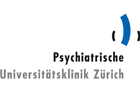Please use Microsoft Edge, Google Chrome or [Firefox](https://getfirefox. com/).
Do you own or work for Kurer Susi?
About Us
I studied psychology at the University of Bern, majoring in psychology, with two minors in education and psychopathology, and graduated with a licentiate. Already during my studies I attended courses in autogenic and mental training and dealt intensively with these methods.
After completing my studies, I first worked as a psychologist in a company for several years, then as a student counselor at a cantonal school in Zurich and as a counselor in my own practice.
After completing my studies, I enjoyed several years of extra-occupational training in person-centered conversational psychotherapy according to Carl Rogers and Focusing according to Eugene Gendlin.
After a maternity leave and work in public administration (district school board and school board) as well as voluntary work (president of a parents' forum and leader of parents' discussion groups on questions of child rearing), I returned to my profession and opened my own practice. At the same time, I completed training in "solution-oriented short-term counseling" (coaching) and NLP (neuro-linguistic programming).
Continuing education and constant supervision enrich and expand my professional activities and promote the quality of my offerings.
I am a member:
- of the Federation of Swiss Psychologists (FSP),
- the Cantonal Association of Zurich Psychologists (ZüPP) and
- the Swiss Society for Person-Centered Psychotherapy and Counseling (SGGT).
I am married and mother of three adult children.
The autogenic training (AT)
The autogenic training, developed by Prof. Dr. med. J.H. Schultz (1884 - 1970), is a simple, easy to learn and everywhere applicable method for concentrative self-relaxation. Prof. Schultz defines his method as a "self-relaxation and self-soothing procedure".
When is autogenic training helpful?
The following list gives some indications:
- in case of nervousness and inner restlessness in general
- for nervousness before or during exams, important conversations or public appearances
- to improve concentration in learning situations and at work in general
- to improve memory and learning ability
- for physical tensions and complaints, which are very often also psychosomatic in nature
- to gain inner distance to difficult situations
- to be able to switch off, for example after work, on weekends or during vacations
- to approach goals in a more relaxed way
- to consciously refuel energy
How is autogenic training structured?
The autogenic training consists of three levels
the lower level, the intermediate level and the upper level.
The lower level consists of six standard exercises that induce a pleasant heaviness and a pleasant sensation of warmth in the limbs and in the stomach-abdomen region, calm the breath and heartbeat, and pleasantly cool the forehead. The trainee calms down by silently saying concrete formulas internally, a recurring resting formula and the pleasant physical sensations that follow.
In the intermediate stage, the trainee forms a guiding principle (formulating a goal to be achieved). This so-called "formulaic resolution" is integrated into the training.
The upper level is strongly meditative and focuses on inner-psychic experience, such as color, form, sound, concept, person and being meditation.
In my courses I teach the basics of the lower and intermediate levels and combine them with the mental training.
The mental training (MT)
Our brain is comparable to a computer. Old programs often set limits that hinder our development and unfolding. Through Mental Training it is now possible to replace old "programs" with new ones, to awaken or strengthen abilities, indeed resources in general, that are within us, and thus to achieve desired behaviors and new habits of thought.
The prerequisite is that these changes are meaningful and feasible.
When is mental training helpful?
Mental training is mainly known in the field of sports. However, it can be applied in the most diverse areas of life, be it in a professional or private environment, or in general for people who have to face challenges of any kind.
What are the most important components of mental training?
Positive thinking The optimist sees a glass half full, the pessimist half empty.
The affirmation A positive statement (a guiding principle) names a goal or a change of something as concretely as possible.
The Visualization The achievement of a goal and also the way to the goal is seen and played through inwardly, as in a film.
The anchoring The visual anticipation of the successfully achieved goal and the successful path to the goal, combined with a pleasant physical and emotional feeling, must be anchored in the trainee. This makes it possible to activate this good feeling at the right moment as if at the "push of a button".
Relaxation Relaxation as a starting point is a good prerequisite for successful mental training. In a relaxed state, our subconscious takes in positive statements and associated images combined with pleasant feelings very well.
This text has been machine translated.
Languages
Location and contact
Kurer Susi
-
office address
Kreuzstrasse 39 8008 Zürich
-
Phone
0432... Show number 043 268 54 81 *0796... Show mobile number 079 663 49 82 *
-
Write an e-mail
- Visit site Visit site
- * No listing required
reviews
Do you wish to rate "Kurer Susi"?

1 reviews from older local.ch. archives
Data from June 2019
* These texts have been automatically translated.
Other listers

Kurer Susi







